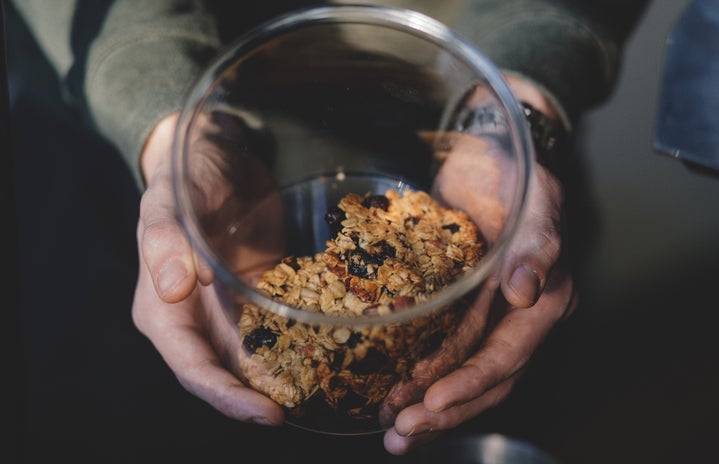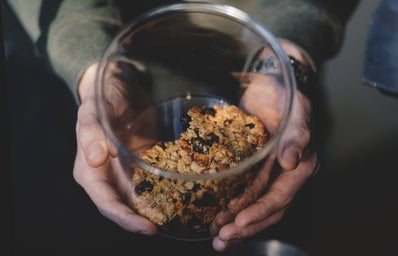It seems like every other day we see breaking health news with the latest miracle food. A single plant extract that can make you lose five pounds, keep your hair shiny, and have you walking like Marilyn Monroe. Get real. If it sounds too good to be true, then it probably is!
We looked into four of the latest health food crazes: chia seeds, wheat grass, agave and kombucha tea to see if they merit a second glance, or even usage! Read on to see if you should skip or pick these items on your next trip to the grocery store with the help of Rebecca Scritchfield, RD a Washington, DC based dietitian who specializes in healthy weight management.
Chia Seeds
If you’re a girl who lived the ‘90s dream, you had a chia pet (and maybe even tickets to see Hanson). The same tiny dark seeds that you lovingly painted on that clay elephant form are the same seeds you’re hearing about now! “All seeds are a healthy source of fats and vitamins and minerals, chia just happens to be on the cutting edge because it’s not widely used yet in the U.S. If you can find a good deal on it, give it a try,” says dietitian Rebecca Scritchfield.
Chia seeds have ten times the omega-3’s as salmon, making them super heart healthy, as well as five times the calcium of milk for strong teeth and bones.
Want to try it? Here’s a great smoothie recipe:
Ingredients:
- 1 C Greek yogurt (high protein and low sugar compared to other yogurts!)
- 1 C fruit (it could be fresh or frozen: strawberries, banana, raspberries, etc.)
- 2 T chia seeds
Blend all ingredients together and enjoy!
Verdict: Pick
Wheat Grass
If you’ve ever walked through the grocery and seen trays of grass, what you’re seeing isn’t sod; it’s wheat grass. It is usually juiced or dehydrated to create a powder form, which totes the following claim according to mywheatgrass.com: “Wheatgrass lowers blood pressure, is an anti inflammatory, energizes, has antibacterial properties, builds blood, stops tooth decay, fades blemishes and sun spots, and tightens skin.” Oh, and it can be used for poison ivy.
But think about it: doesn’t it sound too good to be true?In a 2010Shape magazine article Christine Gerbstadt MD, RD said that our second ‘miracle’ health food “contains the same amount of vitamins as an identical serving size of dark leafy greens.”
Scritchfield says it pays to be a bit skeptical. “Why make it harder to get your veggies than it needs to be? It’s not that wheatgrass is bad, it’s just not better than other forms of raw veggies.”
We do know that wheatgrass has some benefits. It is rich in vitamins A, E, and B as well as a variety of minerals, but it isn’t a cure all. Want your nutrients? Stick to a great veggie medley.
Verdict: Skip
Agave
This sweetener comes from the agave plant, which is then processed to make the actual syrup you see in the store. The main “health benefit” I found advertised with agave is that it is “natural” and has a low glycemic index (meaning it doesn’t make your blood sugar spike as much as other foods).
The doctor’s take? “I actually don’t recommend agave because it is still a highly processed added sugar. It’s not better than any other sugar ingredient and may even be worse. It is high in fructose, which is metabolized by the liver and can elevate triglycerides.”
If you want to try agave in baking as an alternative to granulated sugar, this cornbread recipe from All Recipes received high praise.
Ingredients:
- 1/2 cup cornmeal
- 1/2 cup whole-wheat pastry flour
- 1/2 teaspoon baking soda
- 1/2 teaspoon salt
- 1/2 cup applesauce
- 1/2 cup soy milk
- 1/4 cup agave nectar
- 2 tablespoons canola oil
Directions:
Preheat oven to 325 degrees F (165 degrees C). Lightly grease a muffin pan. Combine the cornmeal, flour, baking soda, and salt in a large bowl; stir in the applesauce, soy milk, and agave nectar. Slowly add the oil while stirring. Pour the mixture into the muffin pan.
Bake in the preheated oven until a toothpick or small knife inserted in the crown of a muffin comes out clean, 15 to 20 minutes.
Verdict: Pick (but be aware that less is best!)
Kombucha Tea
Health drinks are a growing industry and kombucha tea has a definite cult following. Kombucha is a “probiotic drink” that uses a grouping of bacteria and yeast mixed in with tea to ferment over a two-week period.
While it is possible that there are some benefits, there is no significant evidence at this point to prove it. There have been, on the other hand, major reports of ill effects including GI distress and allergic reactions. So what’s the RD’s take? “I personally have not tried this and wouldn’t do so even for money. I’d rather participate in a research study than drink this nasty stuff. Probiotics are beneficial for GI health, but you can get them in many forms that actually taste good.”
Verdict: Skip for safety!
Sources
Wheatgrass Benefits, My Wheat Grass
Vegan Cornbread, All Recipes
Agave Benefits, All About Agave
Kombucha Tea, Mayo Clinic
Rebecca Scritchfield, RD

